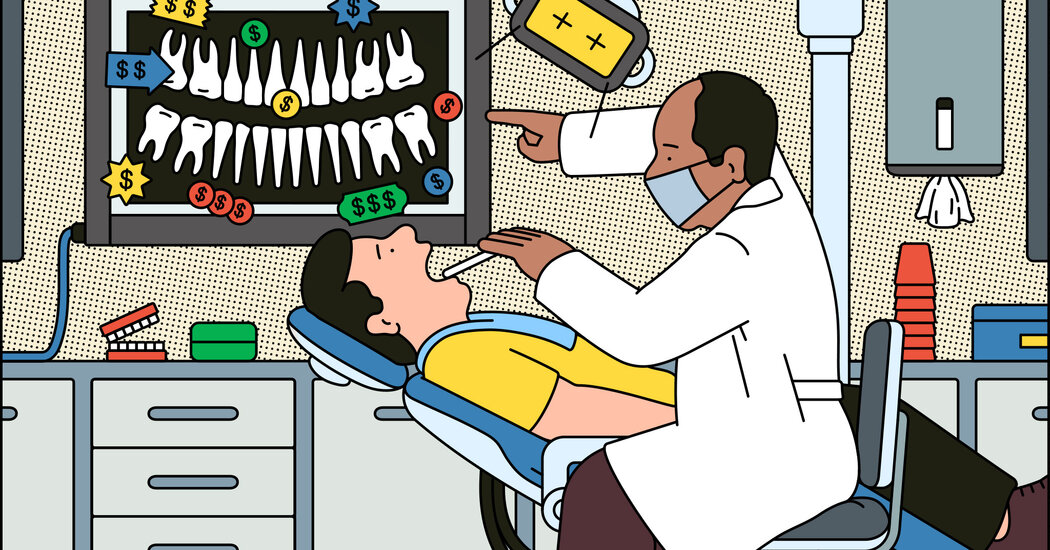“There's no need to get technical about it,” said Ellie Phillips, a preventative dentist based in Austin. “But I would recommend noting whether it's something affecting the front teeth or the back of the mouth. Is it on the outside, which is on the cheek side, or is it on the tongue side?”
Visual aids such as x-rays or images from an intraoral camera, or even simply looking in the mirror, can also help demystify what is happening in the mouth.
Don't feel pressured to agree to anything, not even cleaning.
Your dentist should be able to explain why particular problem areas need specific treatments, said Alyson Leffel, director of patient advocacy and social work at NYU College of Dentistry. And it's perfectly reasonable to ask them for time to research and think about your options.
For example, not all children or adults need to be cleaned twice a year. Studies have found that they don't necessarily lead to better dental outcomes. Likewise, experts debate the benefits of wisdom teeth extraction. And it is not always necessary to replace old silver fillings with composite ones.
If you feel uncomfortable putting it off right now, one way to give yourself more time is to make the recommended appointment for a future date, Dr. Phillips said. Then you can call to reschedule or cancel later.
Ask what is urgent and what the alternatives are.
Some problems, such as an abscess, may need to be treated immediately. But others, such as teeth that need to be replaced with implants, should ideally be treated over the course of multiple appointments, Dr. Phillips said. It is the dentist's job to develop a treatment plan that prioritizes the most pressing problems and avoids cramming major treatments into a single visit.
As a patient, you can – and should – request detailed explanations of the benefits and risks of each treatment, recovery times, whether you will need to take medications to manage your pain, and whether there are consequences for delaying treatment.
“The more questions you ask, the more educated you will be about your dental treatment and the less likely you will be to be anxious about it,” Ms. Leffel said.





